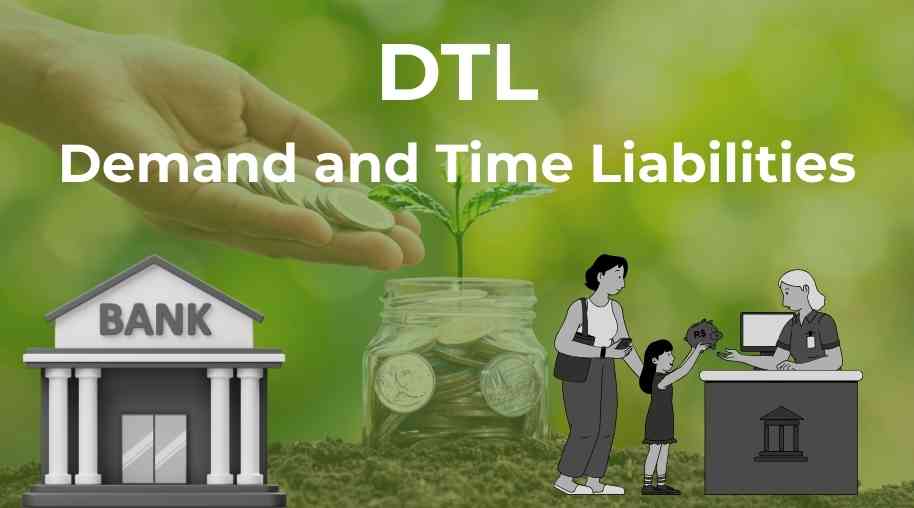DTL Full Form-Demand and Time Liabilities
by Shashi Gaherwar
0 2858
Understanding Demand and Time Liabilities: Definition, Importance, and Calculation
Demand and Time Liabilities (DTL) are key banking metrics determining reserve requirements and liquidity management, critical for financial stability and regulatory compliance.

This article explores the definition, components, importance, and calculation of DTL.
What are Demand and Time Liabilities (DTL)?
DTL encompasses a bank’s total liabilities, split into demand and time liabilities, used to set CRR and SLR as per RBI guidelines.
Components of Demand and Time Liabilities
DTL components:
- Demand Liabilities: Payable on demand, including current accounts, savings balances, demand drafts, and overdue FDs.
- Time Liabilities: Repayable after a fixed period, such as fixed deposits, recurring deposits, cash certificates, and borrowings.
Importance of Demand and Time Liabilities in Banking
DTL is vital for:
- Regulatory Compliance: Determines CRR/SLR requirements.
- Liquidity Management: Balances withdrawals and obligations.
- Interest Strategy: Optimizes deposit rates for profitability.
- Monetary Policy: Influences system liquidity.
How is Demand and Time Liabilities (DTL) Calculated?
DTL formula:
- DTL = Total Demand Liabilities + Total Time Liabilities
Banks report DTL to the RBI to set reserve requirements.
Impact of DTL on Reserve Requirements
DTL affects:
- CRR: Percentage of DTL held as reserves, reducing loanable funds.
- SLR: Portion of DTL invested in securities, ensuring stability.
RBI Guidelines on Demand and Time Liabilities
RBI ensures DTL compliance for:
- Reserves: Adequate for stability.
- Liquidity: Regulates credit flow.
- Monitoring: Tracks assets/liabilities.
Demand and Time Liabilities (DTL) are essential for banking operations, ensuring liquidity, compliance, and monetary policy execution, supporting a stable financial system.
Further Learning Resources
If you’re passionate about building a successful blogging website, check out this helpful guide at Coding Tag – How to Start a Successful Blog. It offers practical steps and expert tips to kickstart your blogging journey!
For dedicated UPSC exam preparation, we highly recommend visiting www.iasmania.com. It offers well-structured resources, current affairs, and subject-wise notes tailored specifically for aspirants. Start your journey today!

Share:









Comments
Waiting for your comments